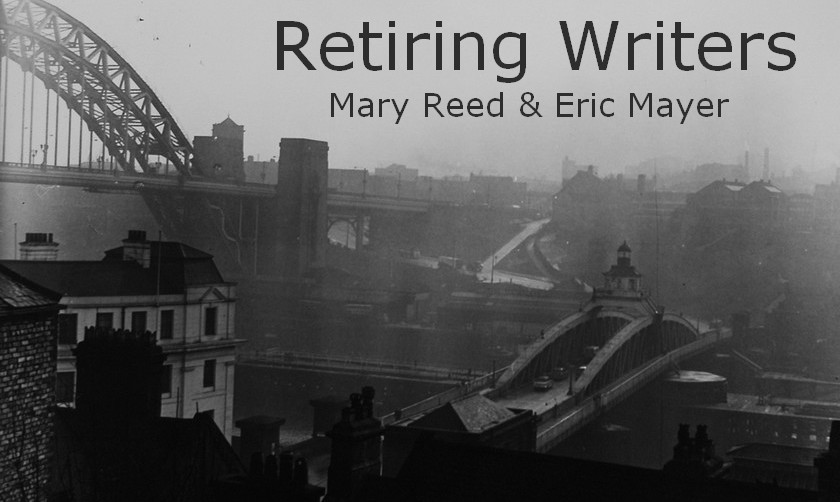A couple of years after the Second World War broke out, the Bishop of Fulham in London was kind enough to share with readers of The Times some advice he had then but lately received from an unnamed official. Apparently the bishop had asked what to do in the event of an enemy attack by poisonous gas. The recommendation he received: to put his hands in his pockets and (presumably not simultaneously) raise his umbrella.
On reading this, my thoughts turned to Georgi Markov, a Bulgarian dissident who defected and subsequently broadcast on the BBC World Service about life in his home country He was assassinated in London in 1978 by means of ricin, introduced either on the tip of an umbrella jabbed into his leg, or by way of a pellet shot from an umbrella-gun. The exact details of the affair will probably never be known, because the Bulgarian Secret Service file relating to his murder was among those reported to have been destroyed when their archives were opened to the public about five years ago.
But since on weekdays at least certain areas of London swarm with civil servants and business men dressed in an unofficial uniform of dark suits, bowler hats, and neatly-rolled umbrellas, who could possibly have suspected that among them was one with murderous intent?
On the other hand, it is my contention the person toting the gamp in Edward Gorey’s sinister title sequence for the Mystery series on PBS is up to no good, and until contrary evidence is produced, I shall remain convinced that there is Something Nasty concealed under that umbrella.
Fanciful, you may say? Perhaps so, but in the annals of the law cases are recorded where there is a direct link between crime and umbrellas.
Take, for example, an 1983 California case concerning a defendant apprehended going into a bank with a stickup note about his person and an umbrella handle disguised as a weapon by the ingenious device of draping it with a towel. The equally ingenious defence offered that his umbrella had been broken by high wind, and he was taking the handle home to attempt a repair of a handleless umbrella he had there. And the stickup note? He maintained that he had just been to a job interview and, while waiting to be seen, had read an article on bank robberies. This had inspired him to idly write a mock stickup note. As to the towel: he declared that he was carrying it because of excess perspiration. An appeals court decided that an umbrella disguised in the manner described would be frightening enough to support a conviction of attempted armed robbery.
Less than ten years later, in 1992, on the other side of the country a New York man was found guilty of being involved in the sale, by a third party, of a controlled substance to an undercover detective — in this case, cocaine vials, produced from an umbrella.
Sometimes the umbrella’s role is more marginal, for example in questions of liability. The worst case occurred in 1983 in Louisiana, where a passenger attempted to stop a woman leaving a bus. The woman’s husband struck him with an umbrella and was then fatally shot. The bus driver was not held liable because of his lack of knowledge as to the intent of the passenger, and the fact that he did not know he was armed. However, in 1916 in Arkansas, when a female passenger struck a fellow traveller on his head with her umbrella — he had apparently grabbed her arm — the railway company was held liable because the man had been allowed to board in an intoxicated state.
In Louisiana in 1930 a driver escaped liability for negligence when he struck a pedestrian in an intersection after the light turned green. It was found that because it was a dark, rainy night, and the injured party was not only dressed in dark clothes but also was holding a black umbrella over her head, the driver would have been unable to see, and thus avoid, her.
Another Louisiana case in 1969 involved a shopper hit by an automatic door when leaving a store. Having paused within range of its sensor to open her umbrella, she was considered to have contributed to the accident. As in a 1993 suit in North Carolina, where a customer fell over an umbrella protruding from a display into a store-aisle, the complaint was dismissed.
Courts have ruled that expert testimony is not required in cases where the general public would find cause and effect obvious. This was illustrated in 1981 case in Illinois, where the record noted the public generally understood that if someone is stabbed in the eye with the point of an umbrella, that eye will be severely damaged.
Lamentably, then, umbrellas have been occasionally been put to uncivil uses. Lovers of Ed Hoch’s short stories must forgive my closing by giving away part of the plot of his One Bag of Coconuts, published in the November 1997 issue of Ellery Queen’s Mystery Magazine, but who could resist quoting this wonderful confession:
“I had to do it,” Adelaide said, holding the smoking umbrella.

No comments:
Post a Comment